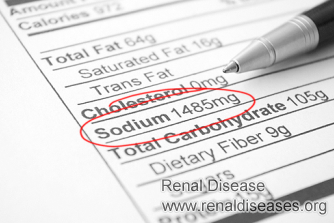“What preparation should I make If I decide to come to here for the treatment?”. Many foreign patients will ask the question. Now, everything is listed below. Any questions, please call me directly, (). I am glad to help you.
Read More >>
 For Kidney Failure Patients, dialysis may be recommend to replace the damaged kidneys. Due to severe drop of kidney function, patients will suffer from various symptoms and complications. Well then, is hypernatremia possible a chronic kidney failure subject in dialysis?
For Kidney Failure Patients, dialysis may be recommend to replace the damaged kidneys. Due to severe drop of kidney function, patients will suffer from various symptoms and complications. Well then, is hypernatremia possible a chronic kidney failure subject in dialysis?
In fact, hypernatremia can be a chronic kidney failure subject in dialysis. Wanna the reasons? Please read on.
In normal condition, the healthy kidneys are endowed with numerous functions. They are responsible for discharging extra wastes and toxins from the blood, keep electrolyte and acid-base balance, regulating blood pressure and so on. However, when diagnosed with Chronic Kidney Failure, patients may suffer from a common symptom-hypernatremia (high sodium).
Hypernatremia is an electrolyte imbalance and is indicated by a high level of sodium in the blood. The normal adult value for sodium is 136-145mEq/L. Sodium is an element, or an electrolyte, that is found in the blood. Normally, our healthy kidneys can keep electrolyte balance and help discharge extra sodium from the blood, while for kidney failure patients, the damage kidney can discharge excessive sodium, then they will pile up in the body over time, resulting in hypernatremia. Along with the symptom, patients also may suffer from nausea, vomiting, muscle weakness, severe diarrhea and so on.
Dialysis is alternative treatment which can replace the damaged kidney to do many work. It can help purify blood and filter extra wastes and toxins from the blood to some extent. Patients can get improvement after the treatment of dialysis. But meanwhile, some patients will suffer from the symptom again once the dialysis stops. The root problem cannot be solved, the condition is easy to relapse. Well then, is there a better way to lower high sodium level?
Home remedy:
1. Drink relatively water, so as to prevent dehydration.
2. Choose a low-sodium diet
Medical treatment:
1. Control blood pressure within the normal range by taking medicine ACEIs or ARBs.
2. Decrease blood sodium level by taking loop diuretics (water pills) which can make you urinate out extra fluid.
3. Blood Pollution Therapy aims at cleaning the polluted blood and improve renal function with the help of Chinese herbs and various blood purification technologies.